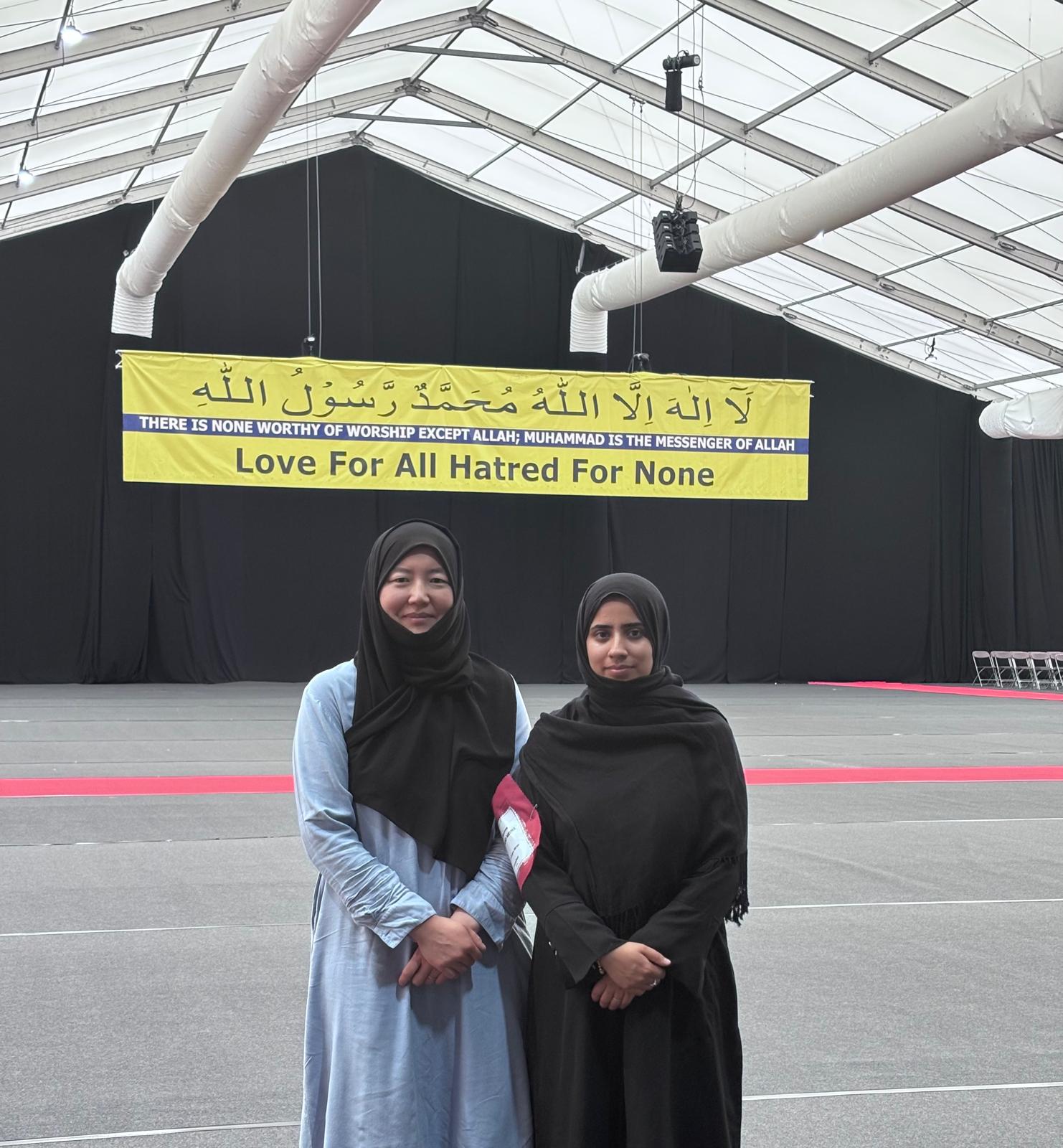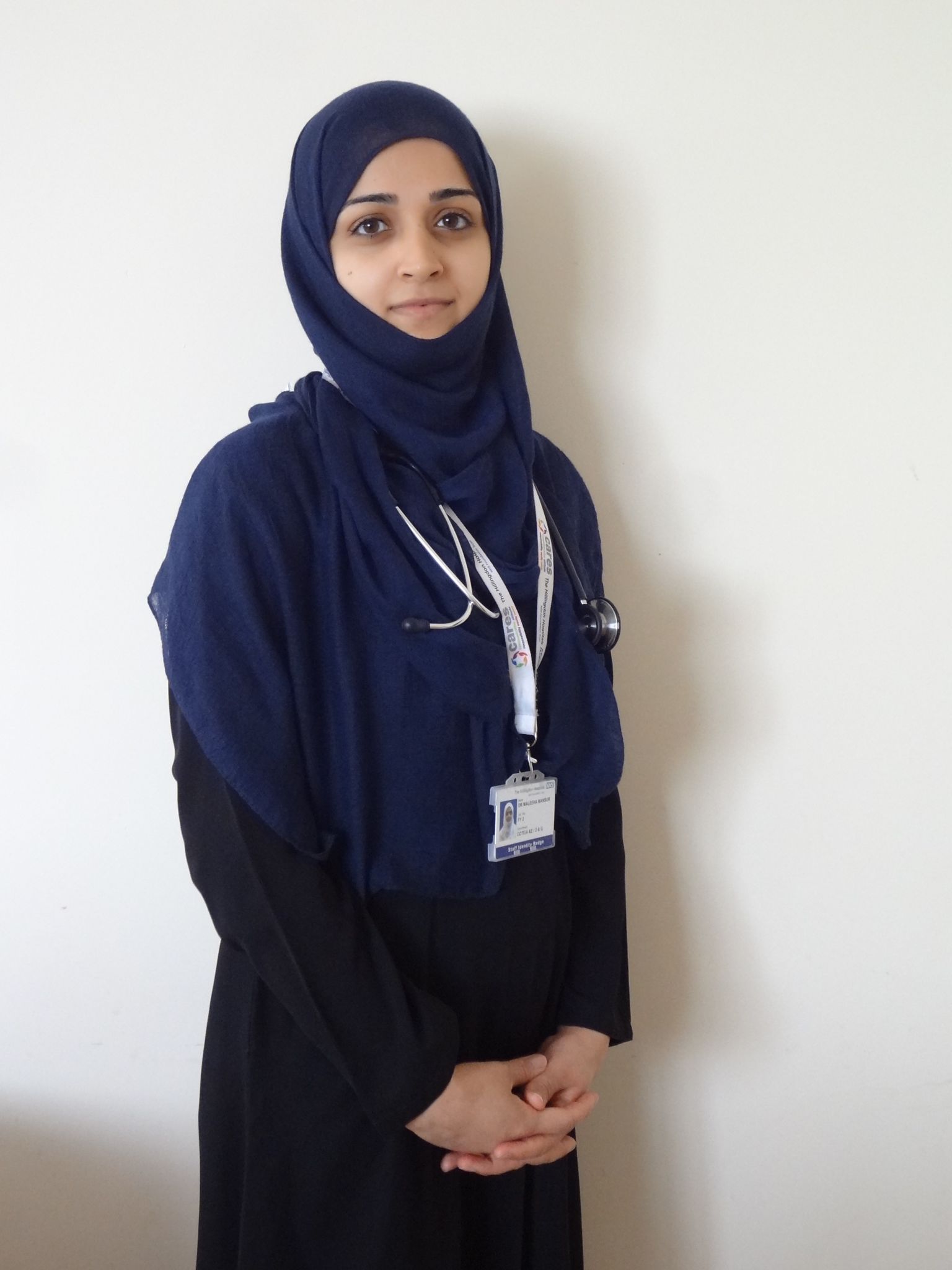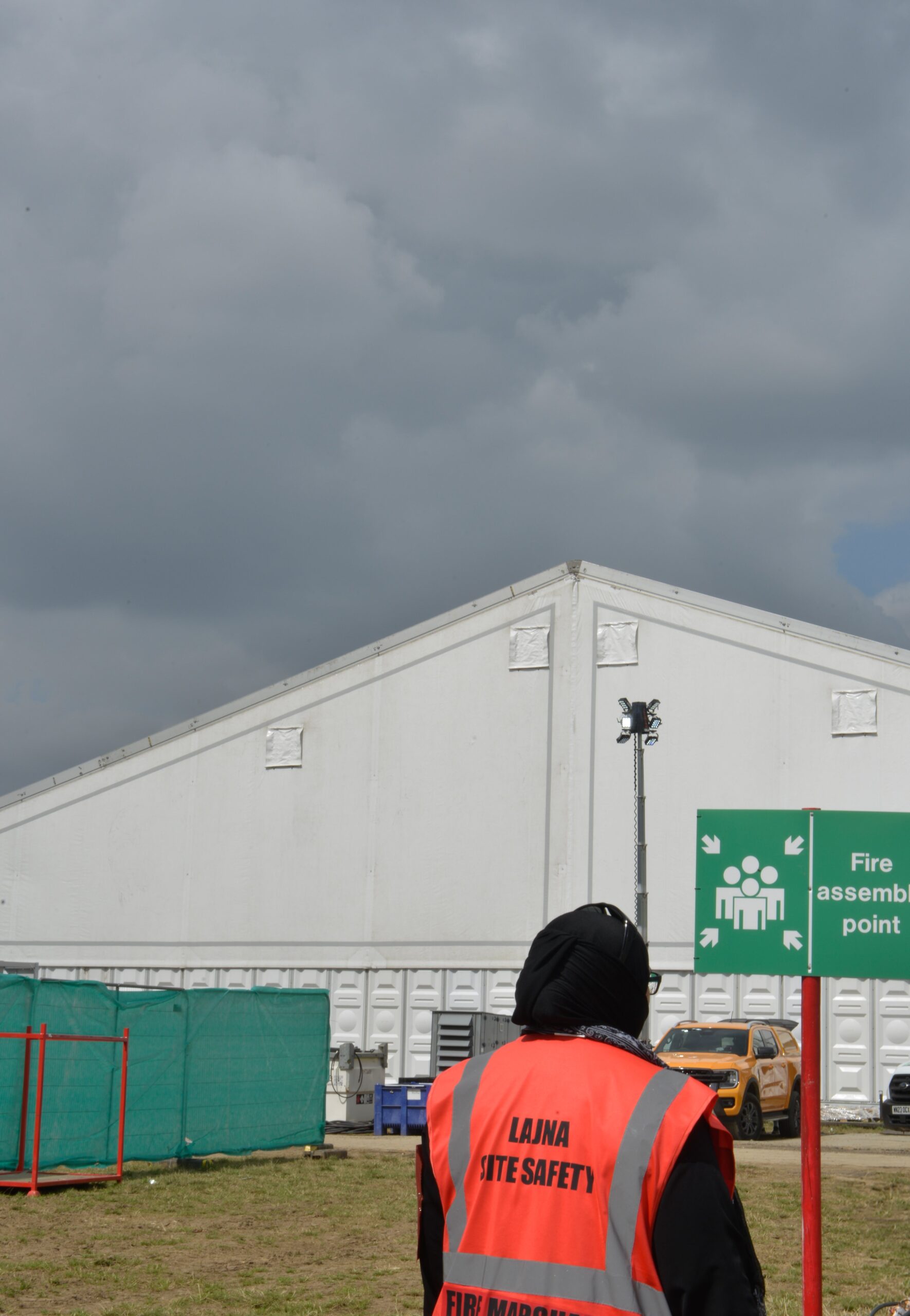Muslim women have spoken about how wearing the hijab is “empowering” in the face of a new poll that has revealed almost half of Britons believe that women are pressured into putting it on.
The survey found 49 per cent of the British public believe Muslim women wear the hijab due to family or community pressure, while just a quarter (26 per cent) see the decision as a personal choice.
The new YouGov survey – which was commissioned by the Ahmadiyya Muslim Community and involved polling 2,130 UK adults earlier this month – comes as more than 20,000 Muslim women gather at the country’s biggest Muslim convention, Jalsa Salana UK.
Dr Munazzah Chou, 40, one of the over 6,000 female volunteers at Jalsa Salana helping to run a tent city on 210 acres of Hampshire farmland, told The Independent she started wearing the hijab at the age of 16. “There are many choices we make everyday,” she said. “I have made the choice to wear the hijab, as an expression of my religious beliefs.”

Her words were echoed by Dr Maleeha Mansur, who felt the hijab was “empowering”.
Responding to the findings, the 36-year-old obstetrics and gynaecology registrar from Uxbridge, west London, said: “I’m not surprised by the results, but it’s disheartening, because I wish people would listen to how Muslim women actually feel.”
The women we spoke to at Jalsa Salana believe that wearing the hijab is a liberating choice.
“Wearing the hijab is a choice like any other, and the hijab enables us to feel spiritually grounded in a world that is materially oriented”, said Dr Chou, an ophthalmologist from Farnham, in Surrey.
“It’s empowering because when I’m going about my day to day life, I don’t have to think or worry about appearances – I don’t think that’s the most important thing”, echoed Dr Mansur who is also a teaching fellow at the Nuffield Department of Women’s and Reproductive Health at the University of Oxford.
“It’s empowering because I choose who gets to see my beauty and who doesn’t.”

The survey results also showed that the majority (53 per cent) of Britons believe that Islam is not compatible with British values. And a stark disparity was found between the number of people who view Muslim immigrants negatively (41 per cent) compared to Christians (7 per cent), Jews (13 per cent), Sikhs (14 per cent) and Hindus (15 per cent). Meanwhile, almost a third of the British public (31 per cent) believes Islam promotes violence, according to the research.
At Jalsa Salana, the Union Jack will be raised along with an Islamic flag to mark the beginning of a three day “Muslim festival” with over 40,000 people attending from across the world.
The annual event, held by the Ahmadiyya Muslim Community, features a series of keynote addresses by His Holiness Mirza Masroor Ahmad, the Caliph and worldwide head of the Ahmadiyya Muslim Community. Attendees at this year’s event which also showcased exhibitions, bookstalls and a bazaar, insist that there is no conflict between being British and being Muslim.
Media narratives are to blame for the rise in misconceptions, believes Dr Chou. “Public perceptions are not formed in a vacuum. I do think that media coverage of Muslim women perpetuates the idea that we are ‘other’ rather than fully fledged members of society.”

Iffat Mirza-Rashid, 26, a doctoral student at Cambridge University, said of her decision to wear the hijab:
“Look at society today – there’s a lot of pressure on women to look a certain way. The hijab is a powerful response and resistance to that sort of pressure. It encourages the people around us to see us for who we are, rather than what we look like – and that’s really empowering.”
The comparative literature researcher continued: “It’s just a piece of cloth – but then it’s so much more, because it’s a reflection of your beliefs. It’s powerful to be able to express your beliefs because you can make a certain statement about who you are and what your priorities are.”
